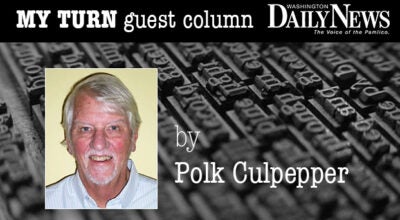Why hating the government is a trending tagline for millennials
Published 1:55 am Wednesday, December 6, 2017
In 2017, when you ask the typical college student between the ages of 18-25 about their views of government and government-based policies, they will respond and tell you that they dislike and or hate the government. When questioned further, a common response is: Because the government is corrupt, or because the government ignores concerns of the average American. Okay, the latter is a pretty understandable response, right? But when asked for specific examples, millennials fail to provide any background evidence, information, statistics or other reasons as to why the government does not work in their favor.
To understand why millennials share this view, it is necessary to consider the fact that none of them will respond with their dislike of the current administration (which is astonishing, as one might expect that the response would be to express disdain). When asked about policy issues, millennials tend to give vague answers referring to what they have always believed, which leads to the next reason as to why millennials have an opinion of the government that is distasteful. Many millennials were first introduced to the controversy of politics by their parents at a young age. Paired with the lack of political education in secondary school, millennials have not been properly introduced to public-policy issues, arguments from opposing sides and how being tolerant of other people’s views is paramount to understanding politics. Plus, when adults continuously claim that millennials are lazy, why would they take the time out to study a policy?
In fact, in a world of technology, millennials are more inclined to turn to social media platforms, as well all know. These may include Facebook, Twitter or even Snapchat, which is beginning to include political articles. And, when search engines skew results based on your past searches, getting information on news and policy issues may be difficult for most millennials, who expect instant gratification when searching for an answer. Multiple-choice tests force us to choose an answer, and the onset of multiple-choice testing has been with the average millennial since first grade. This is not an issue of testing however, and I am not arguing that millennial laziness to search policy issues from reputable sites is not their own fault. Rather, I am asserting that perhaps millennials lack the necessary curiosity to fact-check the news that they find on Facebook. Saying “I dislike the government,” or “big government sucks,” seems to be a trending tagline backed by baseless arguments that sum up to “because it just is.”
The public video-sharing website YouTube is another popular platform that brings me to my latest critique of millennial assertions about how politics do not matter. There has been a wave of videos posted sharing aggressive messages about how the government is one big conspiracy to brainwash millennials and chose random humans to take away in the night, never to be seen again. Many millennials that I have personally talked to strongly support this theory. That aside, when questioned further about specifics of this, most millennials fail to remember the facts from the video they watched. Failure to recall information? I think not. Rather, I believe that this is a part of millennials trying to find a reason to explain away a process that they do not understand. Is it a bad thing? Not necessarily … yet. But will it continue to possibly infringe on the rate of millennial voters? Perhaps. In the next decade to half-century, political figures will continue to target millennial voters. But will they go out and vote in raging numbers? Or will they continue to be turned off by politics based on the idea that the government is a conspiracy with no comment to the actual politicians that are in office? We will have to see.
Jamie Gaynor is an honors student studying at Meredith College in North Carolina. She is a junior studying political science and communication. She has volunteered with the Obama campaign in both elections, and for Hillary Clinton.



